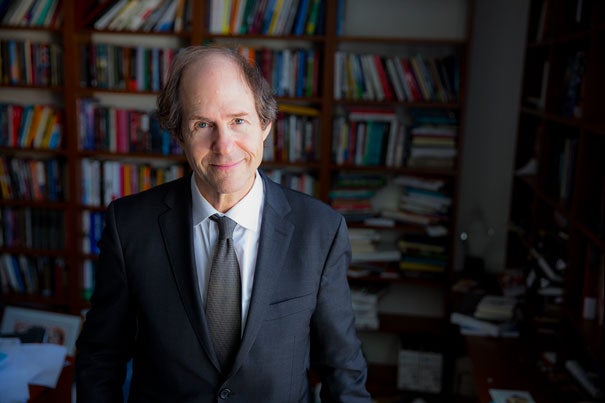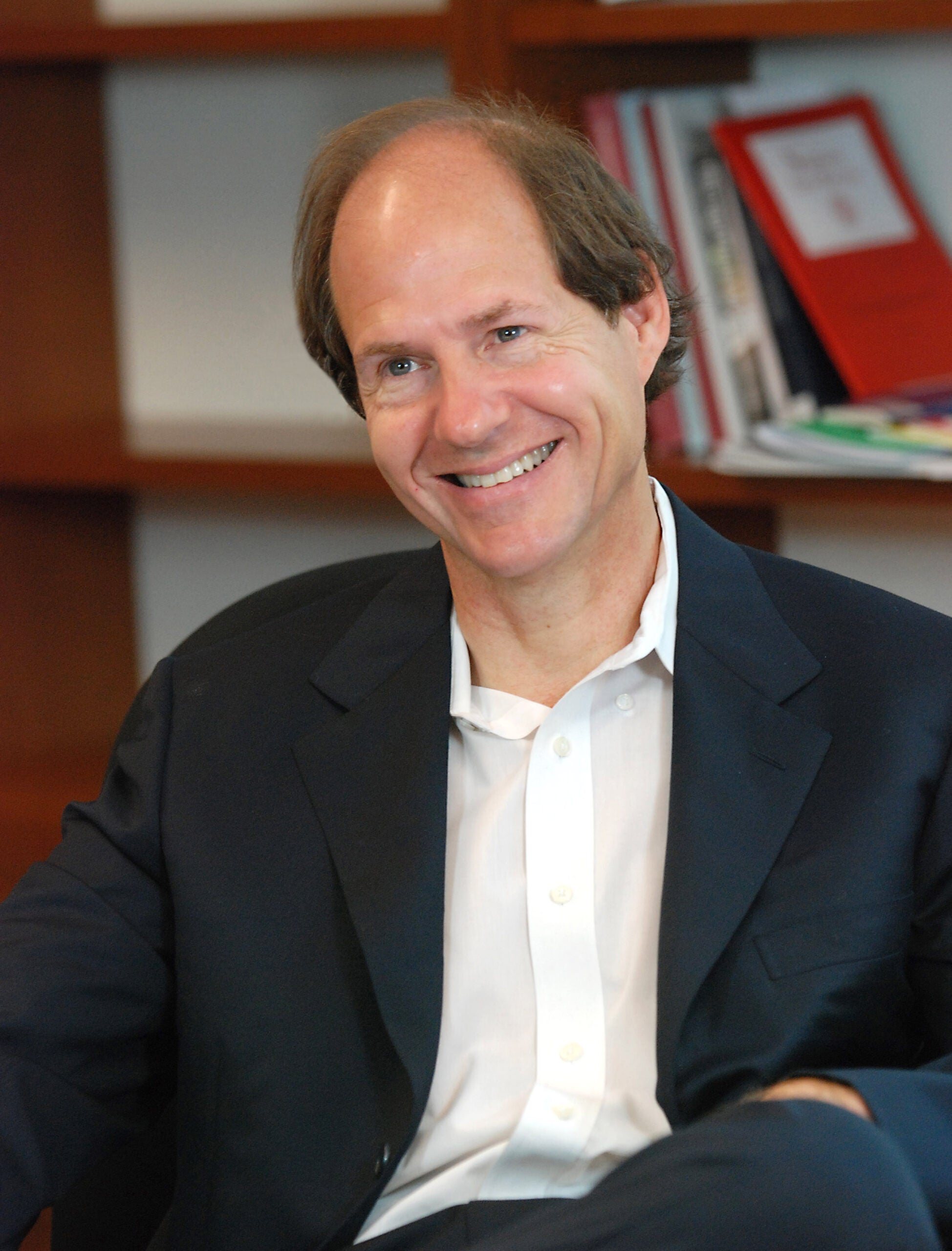Cass Sunstein ’78, the Robert Walmsley University Professor at Harvard, has been tapped by the World Health Organization to chair its Technical Advisory Group on Behavioural Insights and Sciences for Health. Sunstein, who is the founder and director of HLS’ Program on Behavioral Economics and Public Policy, will work with experts from 16 countries to examine the links between health and behavior.
In a U.N. News article announcing the group’s formation, WHO Director General Dr. Tedros Adhanom Ghebreyesus linked the group’s work to the COVID-19 pandemic—specifically the spike in some countries when young people, assuming they are “invincible,” relaxed their guard against the disease.` In that story, Sunstein explains that “Our starting point … is that health involves behavior. And whether we’re speaking of COVID-19, or sexual and reproductive health, or smoking, or other non-communicable diseases, human behavior is at the root of it.”
The group was initially conceived in early February. A global open call was send out that attracted 220 applications. The deadline for applications was in March, and the membership was finalized in late July. The 22 selected members include scientists in the fields of anthropology, psychology, neuroscience and health promotion. In a media briefing announcing the group’s formation, the WHO chief said that “In the face of the COVID-19 pandemic, countries are using a range of tools to influence behavior: Information campaigns are one tool, but so are laws, regulations, guidelines and even fines. We are learning what works and what doesn’t. That’s why behavioral science is so important. It helps us to understand how people make decisions, so we can support them to make the best decisions for their health.”
“In the group’s existence, we are still an infant,” Sunstein told Harvard Law Today this week. It began, he said, when the WHO issued the call for experts in behavioral science. “The focus was on the use of behavioral insights to increase the impact of interventions that are designed to save lives. The basic idea is that there are lots of factors that affect human behavior, and that there are people all over the world who know something about what would be effective in helping to improve health outcomes. In the original call for experts, the idea was to look for people who could advise the organization in how to adopt behavioral insights and sciences, to develop priority areas to make recommendations to the organization for the development of a framework for mainstreaming behavioral insights and sciences, especially with national health programs and program planning. So that’s the basic idea.”
Behavioral science, he says, has proven useful in different facets of public health. “There’s been a great deal of work on this. It’s important to note that the WHO does work on sexual and reproductive health, that’s an area of self-evident importance. And on non-communicable disease, and vaccine hesitancy on communicable diseases. There’s been work on air pollution and behavior, on healthy eating, among many others. And the WHO has devoted considerable attention to what strategies are helpful to reduce the incidence of smoking.”
Thus, he says, the group is not devoted specifically to COVID. “The call was issued at a time when a large number of health problems were on the viewscreen. The deadline was right around the time the pandemic was ramping up. The focus is on how to adopt behavioral insights and behavioral science to support the WHO’s program of work, and to identify priority areas for implementation within the WHO and member states. This is a very large task that cuts across a wide range of public health challenges.”

Asked for an example of how behavioral science might affect health, Sunstein points to another type of everyday decision. “I’ll give an example outside the context of health. We know that if people are automatically enrolled in savings plans, and they are free to opt out, then the participation is much higher than it would be if they are told they can opt in. So, we know that savings plans’ participation rates have increased dramatically in many nations, just because people are automatically enrolled with the freedom to opt out. This is also true for green energy– In some places you are automatically enrolled and in others you have to opt in, and this really matters to the outcome. It would be premature to say exactly how this relates to the group’s work, but it’s an example of behaviorally informed initiatives that have a real impact.”
As the chair of the group, Sunstein will be absorbing a number of different perspectives. “The chair is a facilitator and a listener. If I personally were to try to synthesize all the perspectives, the work would be less good than if we all work together to aggregate the diverse knowledge and perspectives that we have. So, the work will be very much a collective product; all members of the group are created equal. I would say that the group’s diversity is one of the most exciting and impressive features, in terms of the number of nations and the different backgrounds. We have people who have spent much of their time in academia, and also people who have done public health research in a more applied way. I think that will be very productive for the work.”
Sunstein says he will be continuing to help develop a work plan in weeks to come. “I’m hoping that we will have a work plan in the very near future, and the [first] discussions will be on what that should look like. Anything else would be premature, given the timing of the announcement. Our role is to work as a group to think hard about what are the best ways to help the WHO save lives.”
